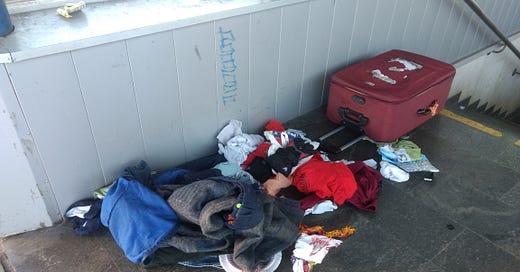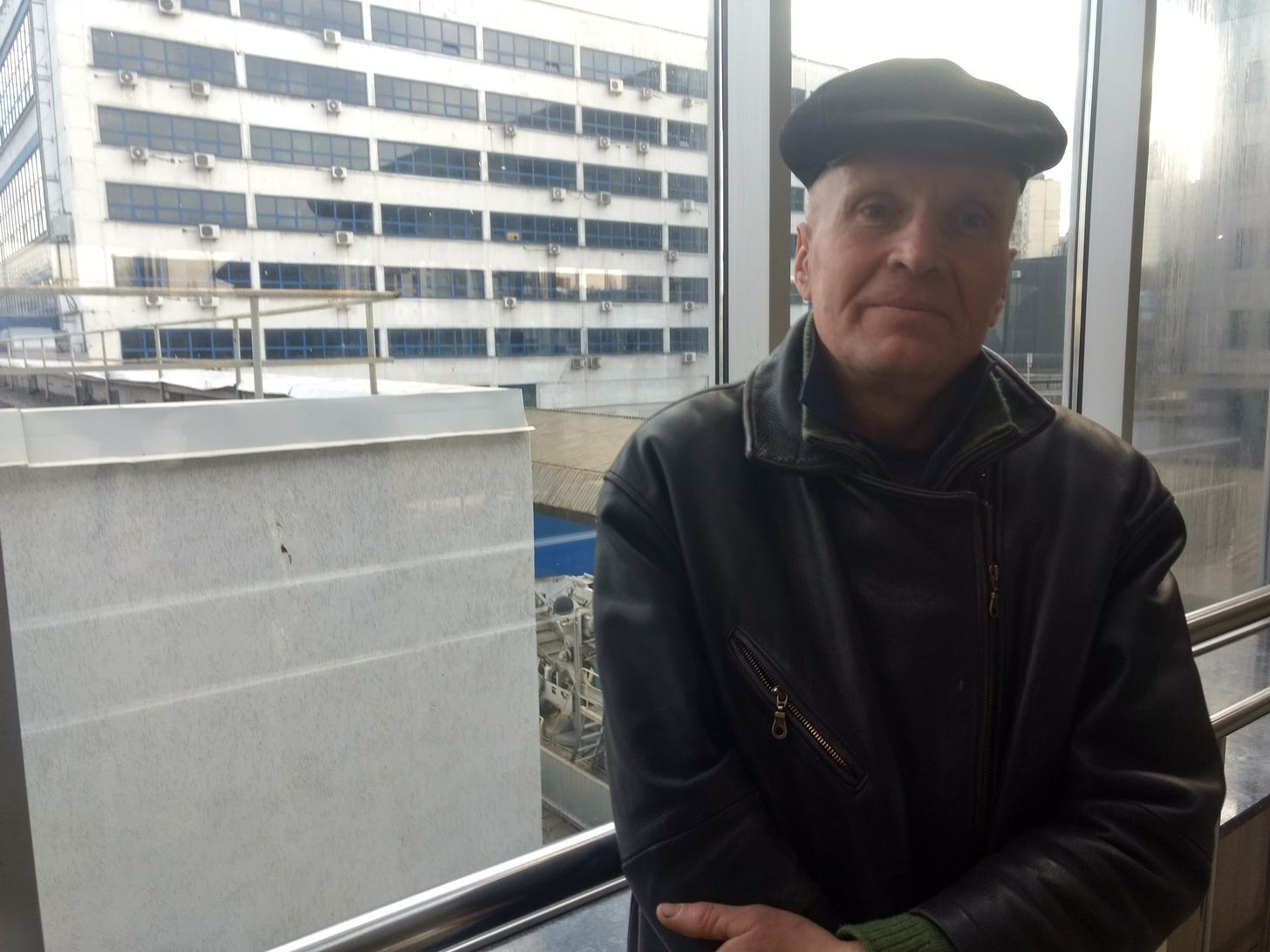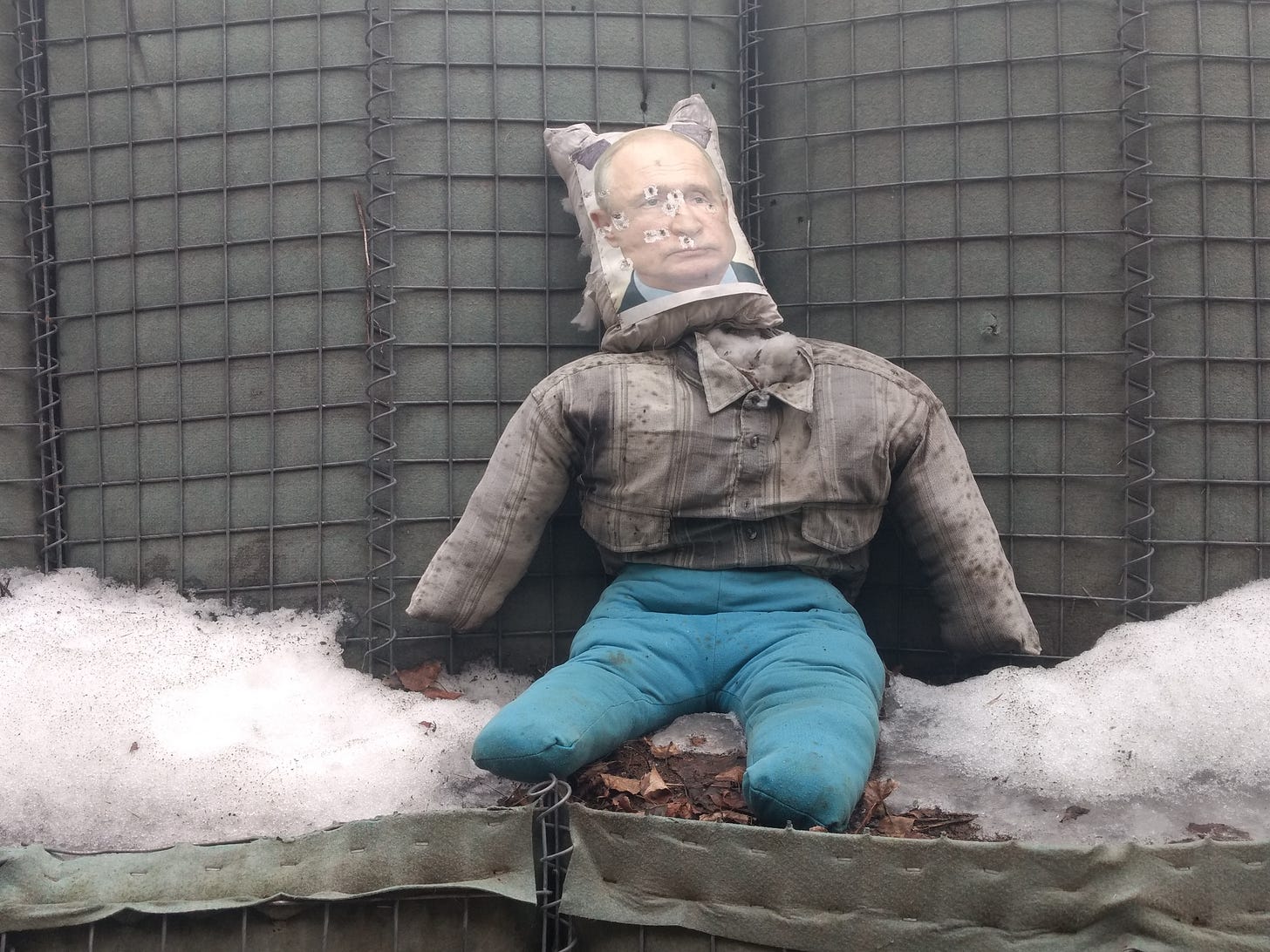Two years of war
Western leaders possess the power to alter the war’s trajectory but continue to hesitate
Luggage abandoned at the main railway station in Kyiv, Ukraine, Feb. 26, 2022. (c. Martin Kuz)
Artillery explosions shook Kyiv awake on Feb. 24, 2022. The 3 million residents of Ukraine’s capital understood then that Vladimir Putin had not been bluffing. They loaded their cars and boarded buses and trains, surging west toward relative safety with a sense of relief but burdened by uncertainty.
I walked along the suddenly empty streets that morning. Smoke corkscrewed skyward beyond Kyiv’s outskirts amid heavy fighting between Ukrainian and Russian troops. The overcast sky and wail of air-raid sirens created the sensation of stepping into a black-and-white WWII film. Putin had unburied the past and unleashed Europe’s largest land war in 80 years.
Waves of people moved through the main railway station clutching suitcases, backpacks, baby carriers. The gravity of the moment robbed them of neither their dignity nor their compassion. When the occasional train pulled into the station, strangers worked together to lift seniors and those with disabilities into the cars. Others gave up their place in line to allow families and relatives to stay together. The people of Ukraine were under siege. Their humanity remained unassailable.
Many chose to stay. The following day, I saw a man looking dapper in a black flat cap and leather jacket standing off to the side as crowds coursed through the station. I asked Volodymyr Baranchuk why he wasn’t joining the flow. He offered a serene smile. “Nothing has changed here — except Russia.”
Volodymyr Baranchuk at Kyiv’s main railway station, Feb. 25, 2022. (c. Martin Kuz)
The retired shopkeeper explained that he wanted to volunteer for the territorial defense force and protect Kyiv. “But this,” he said, holding up his right arm. He had lost his hand in a loading dock accident long ago. Still, he was undaunted. “I will fight the Russians if they find me,” he said. “I’m not going anywhere.”
In those early days and weeks of Putin’s unprovoked war, the collective resolve of Ukrainians resonated far beyond the country’s borders, their courage providing a hopeful rejoinder to Russian tyranny and, more generally, the global rise of authoritarianism. The intensity of their unity was a revelation to the world — and, perhaps, to Ukrainians, too.
Yaroslav Trofimov, the chief foreign affairs correspondent for the Wall Street Journal, grew up in Kyiv and served as a spokesman for Ukraine’s independence movement around the time the Soviet Union collapsed in 1991. Two decades later, he found himself back in the capital as Russia’s full-scale invasion began, and during the ensuing 12 months, he reported from across his homeland. The material he gathered propels his new book, “Our Enemies Will Vanish,” a sweeping, stirring account of the war’s first year that captures the proud defiance of a peaceful nation forced to fight for its sovereignty.
I recently spoke with Trofimov for a Q&A published in today’s print edition of the San Francisco Chronicle. Space constraints prevented inclusion of everything we discussed, so here I’d like to share his perspective on Ukraine’s solidarity.
“People’s character, people’s nature becomes clear in war. It’s like the contents of a tin can — you don’t know what’s inside until you’re under stress,” he said. “I think a lot of Ukrainians didn’t expect their own nation to show such resilience. They maybe didn’t know that Ukraine had this strength. But Ukraine has always survived. It has gone through terrible things in the past — famine, wars — but it has always managed to fight another day.”
A shooting target with the image of Russian President Vladimir Putin sits at a Ukrainian military outpost in the village of Zolote, Ukraine, Feb. 17, 2022. (c. Martin Kuz)
Two years later, battered by an invasion as relentless as it is senseless, Ukrainians have retained their desire and determination to escape Moscow’s long history of brutality. In contrast, the world, once outraged by the war, appears ready to abandon them to their fate.
“People lose the ability to be shocked by certain things. They become desensitized,” Trofimov said. “One massacre is horrible. Two, three, five, 10 massacres — they lose interest. And yet, the war goes on. And yet, people are dying in large numbers in Ukraine every day.”
Every day. Which is to say, not only today, when the world briefly remembers Ukraine as the invasion enters its third year. Western leaders possess the power to alter the war’s trajectory but continue to hesitate, unable to summon the will to act decisively. They could learn from Ukrainians like Volodymyr Baranchuk who refuse to relinquish the freedom that the West claims to cherish.
You can find my Q&A with Yaroslav Trofimov here.
A sincere thanks to all of you who have subscribed and helped spread the word about Reporting on Ukraine. Please keep the momentum going by sharing this link on social media and elsewhere. You can also support my self-funded reporting here. Thank you.






